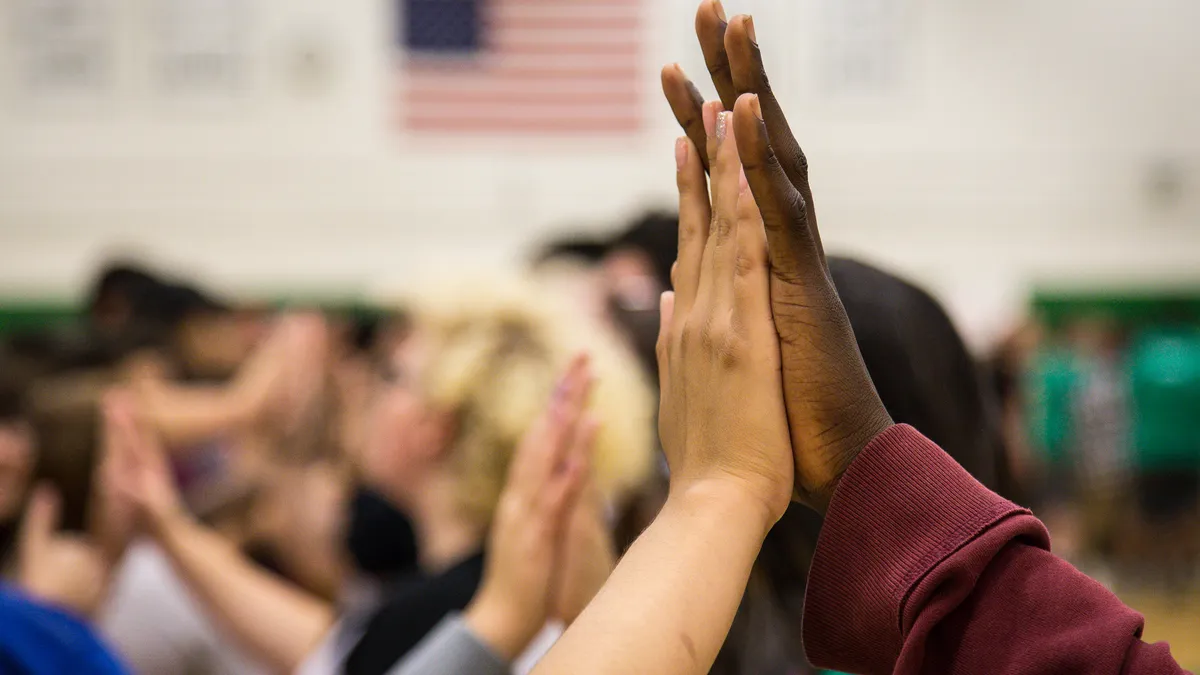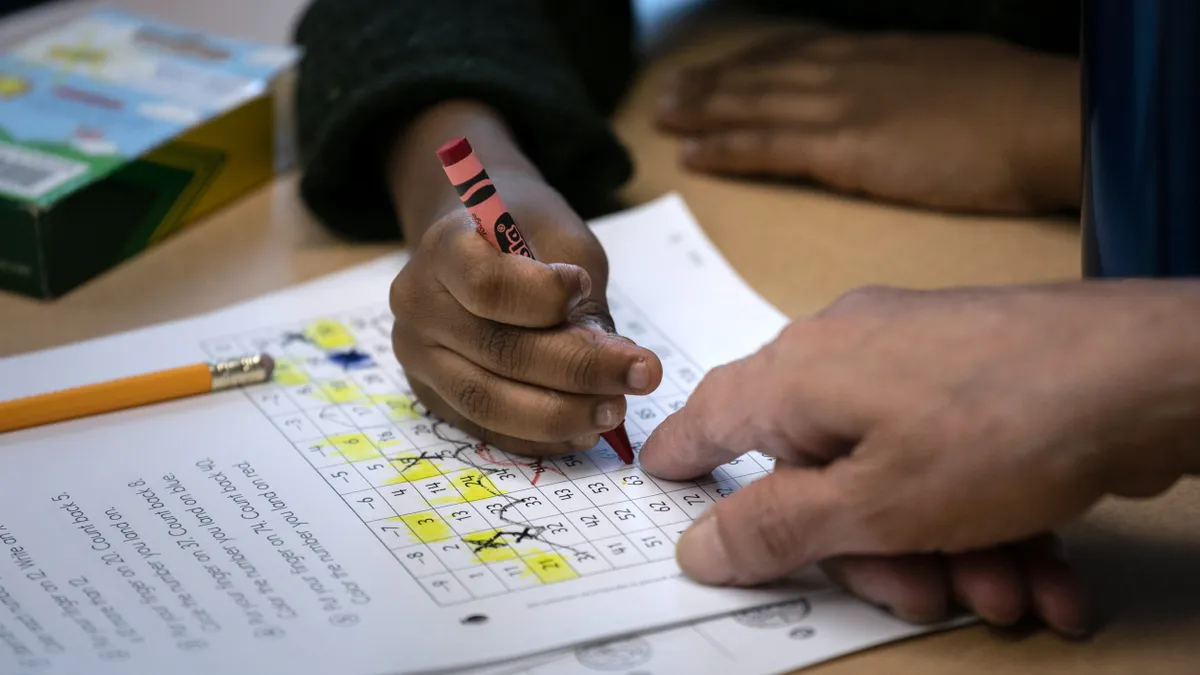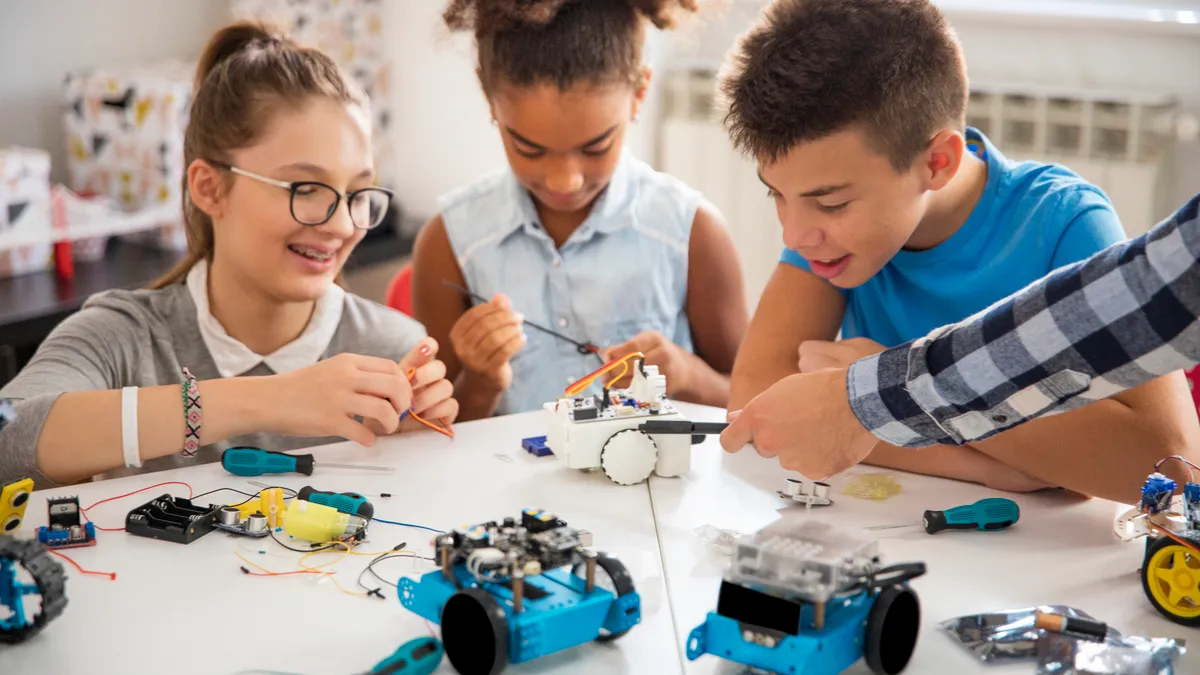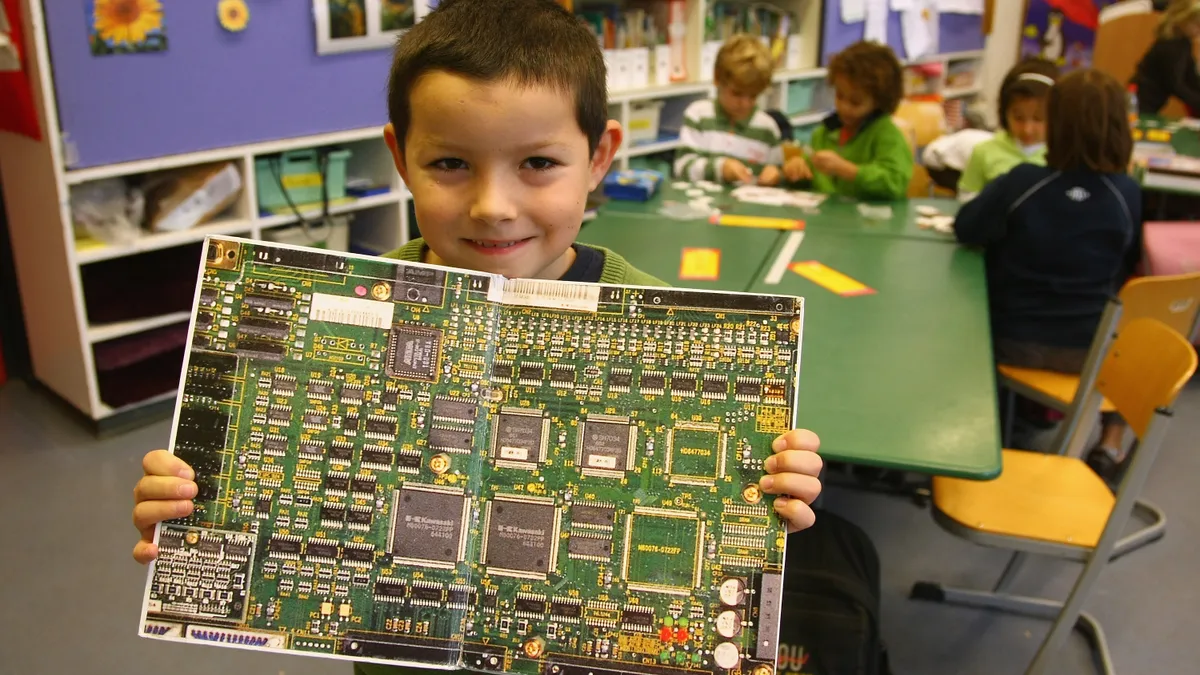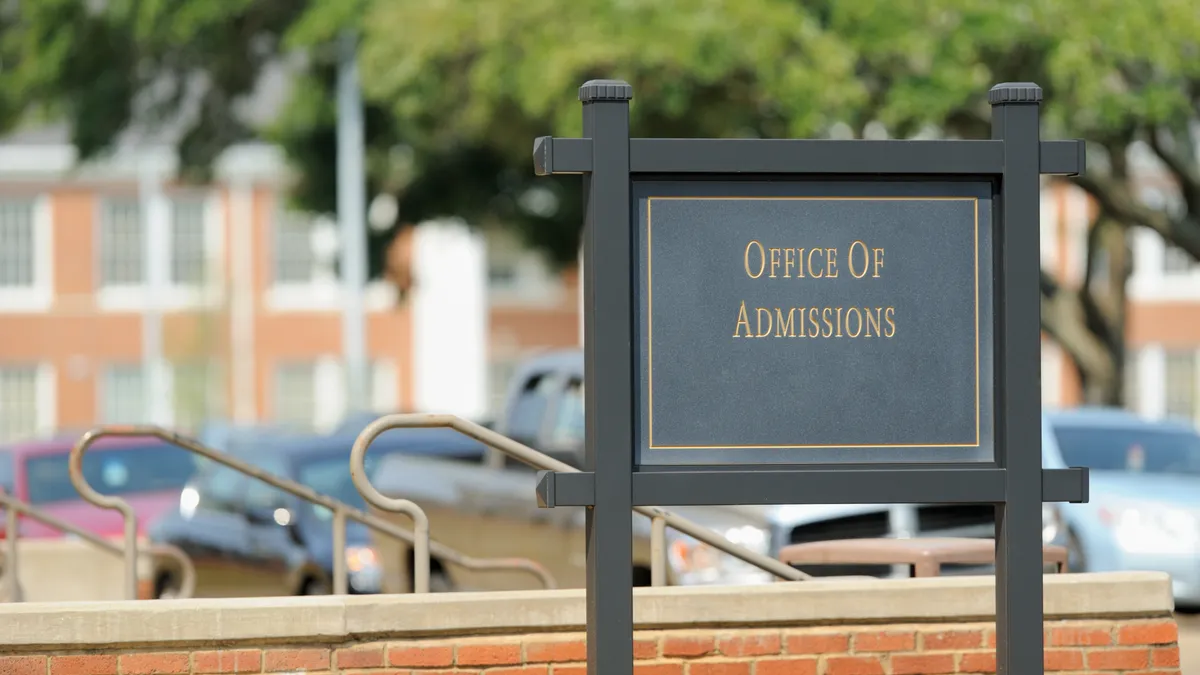Curriculum: Page 30
-
NAEP scores show data literacy dipped during pandemic
An analysis by Data Science 4 Everyone finds 8th graders’ performance dropped by 10 points between 2019 and 2022, while 4th graders fell 4 points.
By Anna Merod • Feb. 15, 2023 -
Amid censorship pushes, meeting student demand for inclusive curricula grows challenging
One expert suggests educators can augment lessons by allowing students to talk about how details of their lives link to curriculum.
By Lauren Barack • Feb. 15, 2023 -
Trendline
Social-Emotional Learning
Our latest K-12 Dive Trendline takes a closer look at how educators are addressing social-emotional learning amid pushback from policymakers and ongoing demand from employers.
By K-12 Dive staff -
CDC calls on schools to help address historic high teen trauma
Nearly 1 in 3 teenage girls seriously considered attempting suicide, and more than 1 in 10 teen girls experienced rape.
By Naaz Modan • Feb. 15, 2023 -
Half of students start school year behind — again
Nearly half of students started the school year behind grade level in at least one academic subject, which is in line with survey data from the year prior.
By Naaz Modan • Feb. 9, 2023 -
NCTQ: Elementary teacher prep programs fall short on social studies, science requirements
Research from the organization suggests a notable gap between course content requirements and the content opportunities available.
By Roger Riddell • Feb. 8, 2023 -
Project-based learning helps apply a ‘why’ to lessons
Hands-on experience tied to lessons, particularly in STEM subjects, provide students a firsthand experience with a topic’s real-world relevance.
By Lauren Barack • Feb. 8, 2023 -
Launching career activities in elementary school? Keep the focus wide
Introducing students to career options at a young age can help them imagine future opportunities, but they also need space to change their minds.
By Lauren Barack • Feb. 1, 2023 -
How to ensure Holocaust education remains grounded in historical fact
A variety of resources and expertise are available to help educators navigate questions and address pushback in an era of classroom censorship.
By Lauren Barack • Feb. 1, 2023 -
Florida, College Board trade barbs on AP African American Studies timeline
The College Board contends all of the removed or altered topics Florida listed as concerning had "substantial educational value."
By Naaz Modan • Updated Feb. 9, 2023 -
Opinion
Will there be a ‘Big Bang’ in education research in 2023?
The head of the Institute of Education Sciences sees two key areas as having potential for major breakthroughs.
By Mark Schneider • Feb. 1, 2023 -
Survey: Women students less prepared to make career, college choices
The Education, Labor and Commerce departments recently added funding for high school work-based learning opportunities.
By Kara Arundel • Jan. 30, 2023 -
Column
Question of the Month: What are your New Year’s resolutions for your school or district?
From promoting school culture and instilling hope to making progress on academic recovery, four leaders share their goals for 2023.
By Roger Riddell • Jan. 30, 2023 -
Pop Quiz: Test yourself on this week’s K-12 news
From new K-12 cybersecurity guidance to an expansive preschool initiative in Hawaii, what did you learn from this week's stories?
By Anna Merod • Jan. 27, 2023 -
Experiential learning can help shrink early disparities in science and math
These activities anchor more meaning to science and math curriculum for young students, and may help close gaps in the subjects early.
By Lauren Barack • Jan. 25, 2023 -
Florida district to launch teacher-driven classroom tutoring support
The program will let teachers schedule online tutors to work synchronously with individual students on specific skills during class.
By Kara Arundel • Jan. 25, 2023 -
K-12 opportunity gaps fuel college-going disparities
The Brookings Institution found that comparing similarly prepared students shrunk racial, gender and socioeconomic divides in college enrollment.
By Natalie Schwartz • Jan. 24, 2023 -

 Retrieved from Florida Department of Education on January 23, 2023
Retrieved from Florida Department of Education on January 23, 2023
Florida says rejected AP African American Studies course ‘lacks educational value’
The state’s education department and governor defended the department’s decision to reject the course, which they said violated Florida’s anti-CRT law.
By Naaz Modan • Updated Jan. 25, 2023 -
Required Florida training tells educators to ‘err on the side of caution’ for library materials
The training also makes clear that teachers violating the restrictions could face a felony charge, which can result in up to 5 years in prison.
By Naaz Modan • Jan. 23, 2023 -
Asking good questions is central to strong civics education
Open-ended, meaningful questions are the difference between challenging students to think deeply or having them learn simple trivia, one educator said.
By Lauren Barack • Jan. 18, 2023 -
How can schools foster an entrepreneurial mindset in students?
Two educators shared their lessons learned in helping middle and high schoolers gain skills in areas like problem solving, teamwork and resilience.
By Elena Ferrarin • Jan. 18, 2023 -
NYC schools restrict the use of ChatGPT, with some exceptions
New York City Public Schools blocked the AI chatbot districtwide as some question the technology’s role in the classroom.
By Anna Merod • Jan. 11, 2023 -
Confidence key to bridging math learning gaps
A math educator suggests helping students become sure of their skills is more productive than focusing on how much time learning recovery will take.
By Lauren Barack • Jan. 11, 2023 -
HMH to acquire nonprofit NWEA
NWEA's MAP Growth assessment schedules and tools will not be affected by the acquisition, the organizations said.
By Kara Arundel • Updated Jan. 11, 2023 -
5 tactics to help students embrace networking and relationship-building
Experts suggest helping students identify and expand their relationship networks, or “social capital,” so they can begin building professional pathways.
By Elena Ferrarin • Jan. 6, 2023 -
Teaching students about AI without breaking a school budget
Effective learning tools that focus on how AI works can be affordable and sometimes woven into any class subject, one expert says.
By Lauren Barack • Jan. 4, 2023


